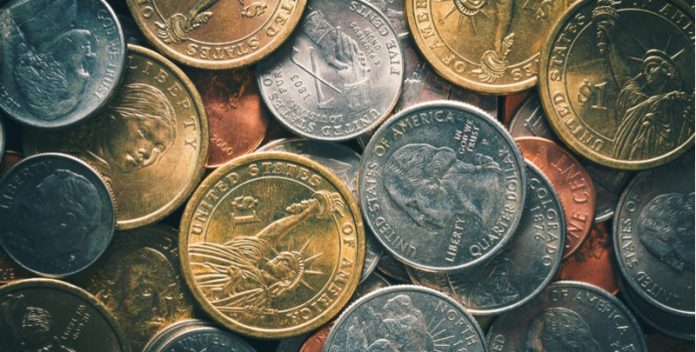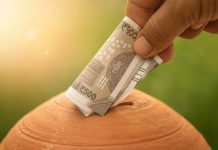Last week was a volatile week for the pound U.S. dollar exchange rate. UK political jitters, better than expected UK economic data and a mixed set of readings from the U.S. jobs report meant that the pound weakened to a low of $1.2778 versus the dollar. The same week saw the pound strengthen to a high of $1.2921.
The pound has started the new week lower against the dollar, as investors digest the latest UK election polls and the U.S. jobs data from Friday afternoon.
| What do these figures mean? |
|---|
| When measuring the value of a pair of currencies, one set equals 1 unit and the other shows the current equivalent. As the market moves, the amount will vary from minute to minute. |
| For example, it could be written: 1 GBP = 1.28934 USD |
| Here, £1 is equivalent to approximately $1.29. This specifically measures the pound’s worth against the dollar. If the U.S. dollar amount increases in this pairing, it’s positive for the pound. |
| Or, if you were looking at it the other way around: 1 USD = 0.77786 GBP |
| In this example, $1 is equivalent to approximately £0.78. This measures the U.S. dollar’s worth versus the British pound. If the sterling number gets larger, it’s good news for the dollar. |
A hung UK Parliament looks increasingly likely
One of the latest polls from Survation show that Theresa May and the UK Conservatives have a lead of just one point over Jeremy Corbyn’s Labour party. With each new poll, a hung parliament is looking increasingly likely.
What is a hung parliament and what does it mean for the pound? A hung parliament is a scenario in which neither the Conservatives nor Labour win a sufficient number of seats in the election to rule by a majority. This often means that two or more parties must join forces in a coalition, like 2010 saw between the Conservatives and Liberal Democrats in 2010. A coalition government is considered pound negative because of the uncertainty surrounding it. For example, even now, three days before Brits hit the voting booths, it’s unclear as to which parties are willing to work together in a potential coalition and under which terms. Furthermore, the outlook for Brexit is murky under a coalition government as it increases the potential for disruptions in the Brexit process. This in turn means a smooth Brexit less likely, which puts the pound under pressure.
| Why is a smooth Brexit good for the pound? |
|---|
| A smoother Brexit would be a scenario in which the economic consequences of leaving the European Union are minimised. This is favourable for the pound because the less the Brexit impact on the economy, the more likely that foreign investors will remain interested in the UK. Foreign investors need sterling to invest in the country and so the more GBP is purchased, the higher the demand and, thus, an increase in the currency’s value. |
U.S. dollar weak after downbeat jobs data
The U.S. dollar was weaker against most of its major traded peers on Monday, although the buck managed to strengthen versus the pound. Investors continued to digest the closely watched U.S. jobs data from Friday. The report was mixed; job creation missed analyst expectations by almost 50,000 posts, very disappointing. However, on the plus side, the unemployment rate unexpectedly ticked down from 4.4% in April to 4.3% in May, suggesting that the U.S. must be close to full employment. Which means wages should start to tick up soon.
What do these figures mean for the dollar? Although not great, the jobs data hasn’t been considered sufficiently weak to push the Federal Reserve off course from its next interest rate rise at the Fed’s meeting in June. However, doubts are being cast as to whether any further interest rate increases will happen across the rest of the year. These doubts are keeping demand for the dollar low.
| Why do raised interest rates boost a currency’s value? |
|---|
| Interest rates are key to understanding exchange rate movements. Those who have large sums of money to invest want the highest return on their investments. Higher interest rate environments tend to offer higher yields. So, if the interest rate or at least the interest rate expectation of a country is relatively higher compared to another, then it attracts more foreign capital investment. Large corporations and investors need local currency to invest. So more local currency used then boosts the demand of that currency, pushing its value higher. |
This publication is provided for general information purposes only and is not intended to cover every aspect of the topics with which it deals. It is not intended to amount to advice on which you should rely. You must obtain professional or specialist advice before taking, or refraining from, any action on the basis of the content in this publication. The information in this publication does not constitute legal, tax or other professional advice from TransferWise Inc., Currency Live or its affiliates. Prior results do not guarantee a similar outcome. We make no representations, warranties or guarantees, whether express or implied, that the content in the publication is accurate, complete or up to date. Consult our risk warning page for more details.
This article was initially published on TransferWise.com from the same author. The content at Currency Live is the sole opinion of the authors and in no way reflects the views of TransferWise Inc.





